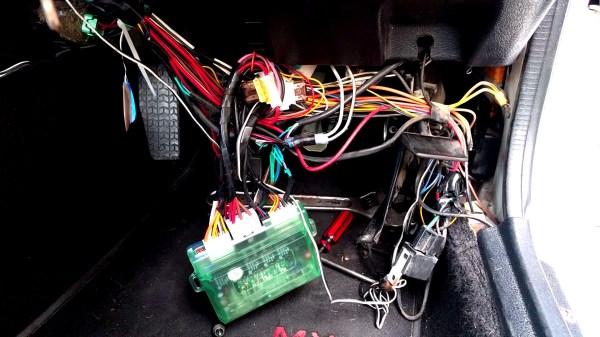There are a few vehicles on the road that are targeted often by car thieves, whether that’s because they have valuable parts, the OEM security is easily bypassed, or even because it’s an antique vehicle that needs little more than a screwdriver to get started. For those driving one of these vehicles an additional immobilization feature is often added, like a hidden switch to deactivate the fuel pump. But, in the continual arms race between thieves and car owners, this strategy is easily bypassed. [Drive Science] hopefully took one step ahead though and added a decoy killswitch instead which triggers the alarm.
The decoy switch is placed near the steering column, where it would easily be noticed by a thief. Presumably, they would think that this was the reason the car wouldn’t start and attempt to flip the switch and then start the ignition. But secretly, the switch activates a hidden relay connected to the alarm system, so after a few seconds of the decoy switch activating, the alarm will go off regardless of the position of this switch. This build requires a lot of hiding spots to be effective, so a hidden method to deactivate the alarm is also included which resets the relay, and another killswitch which actually disables the fuel pump is also added to another secret location in the car.
As far as “security through obscurity” goes, a build like this goes a long way to demonstrate how this is an effective method in certain situations. All that’s generally needed for effective car theft prevention is to make your car slightly more annoying to steal than any other car on the road, and we think that [Drive Science] has accomplished that goal quite well. Security through obscurity is generally easily broken on things deployed on a much larger scale. A major European radio system was found to have several vulnerabilities recently thanks in part to the designers hoping no one would look to closely at them.













